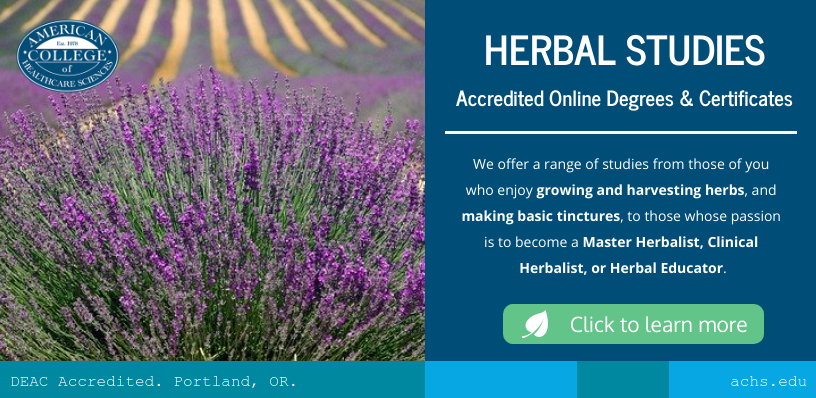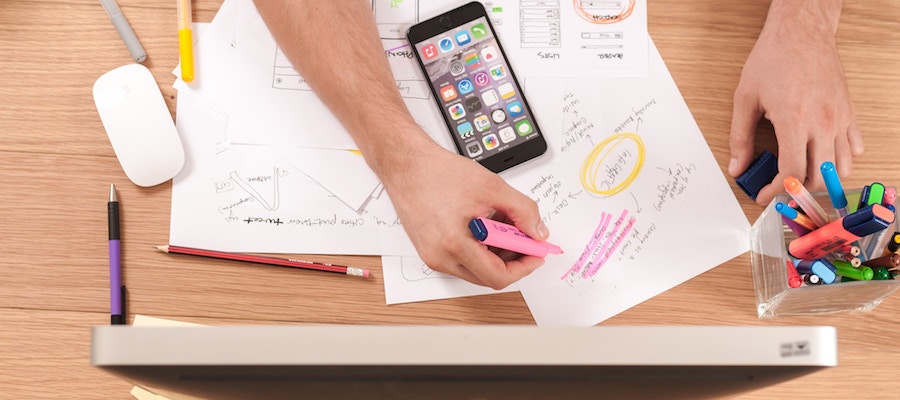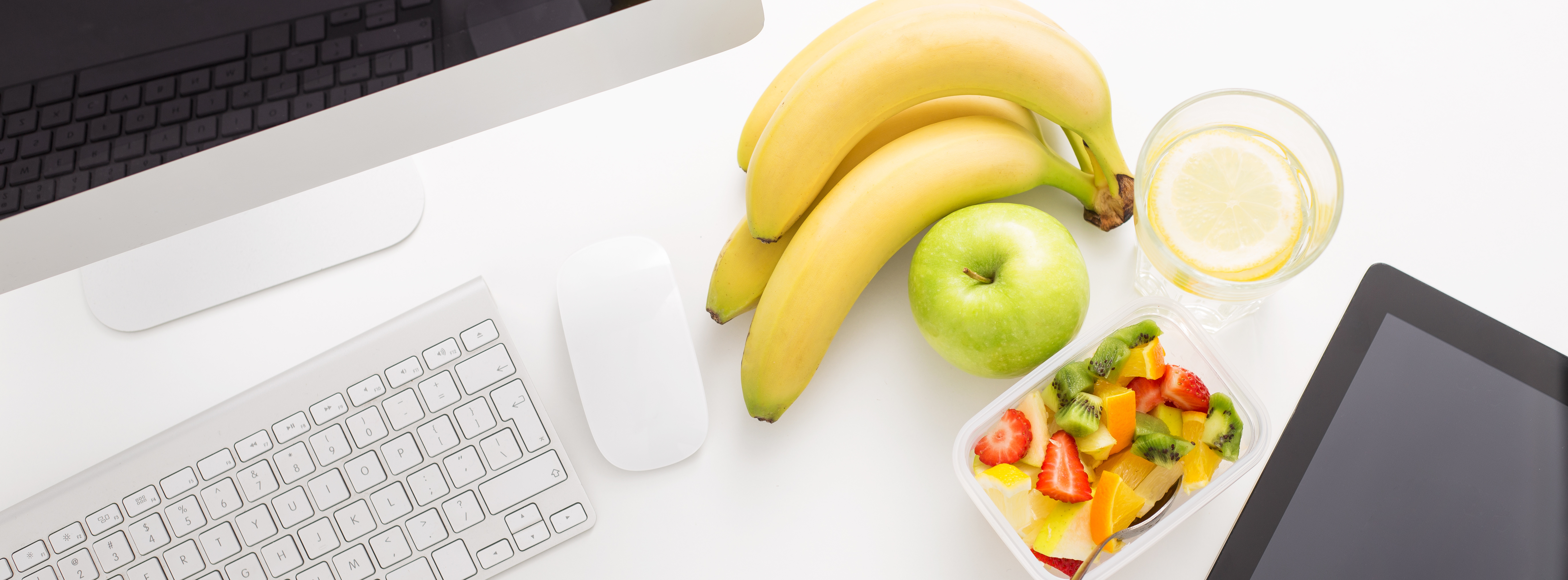 5 Holistic Ways to Boost Productivity
5 Holistic Ways to Boost Productivity
Productivity is on everyone’s mind these days, especially around the holidays and New Year. There’s much to do, and there never seems to be enough time to do it. You may have tried new apps, programs, and routines hoping they might help, only to end up right back where you started.
Real productivity comes not from technology, but from your approach to time management. There are a lot of skills to learn, but one of the most important is self-care.
Imagine how much you get done when you’re tired compared to how much you can accomplish when you’re full of energy. With that in mind, here are four holistic ways to boost productivity through consistent and focused self-care.
1. Get the technology out of the bedroom.
A recent survey by the Virgin Pulse Institute revealed that over three-quarters of employees felt tired many days of the week[1]. That’s bad news, because fatigue destroys your productivity. In a 2007 study, researchers reported that sleep deprivation impaired attention and working memory, as well as long-term memory and decision-making[2].
One of the main causes of sleep problems is technology. Televisions, tablets, computers, and phones emit blue light, which messes with the sleep hormone melatonin, disturbing sleep and leading to daytime tiredness.
Reading a typical eReader before bed, for example, causes you to take longer to get to sleep, according to a 2011 study. It also reduces melatonin secretion, increases morning sleepiness, and even disturbs circadian rhythms[3].
Get all the technology out of your bedroom, and stop using it at least an hour before bed. Even if you’re up late studying for your nutritionist certification, give yourself at least one hour away from the screen before you fall asleep.
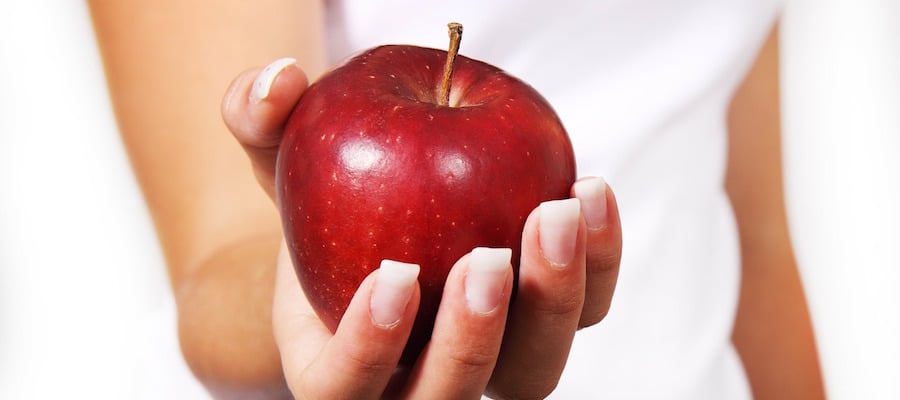
2. Cut back on the sugar.
You already know that maintaining a healthy diet and limiting your consumption of simple sugars helps you avoid disease and live longer. It also helps you to be more productive.
Yet as Americans, we’re consuming far too much sugar. The U.S. Department of Agriculture (USDA) found that the average American consumed 156 pounds of added sugar per year between 1970 and 2005. We’re supposed to get only eight teaspoons a day, yet we’re getting about 30 instead[4].
In 2015, researchers reported that a diet high in sugar or fat impaired memory and cognitive flexibility[5]. (Sugar created worse results than fat, by the way.) And in 2012, researchers reported that when animal subjects consumed a diet high in high-fructose corn syrup, it slowed their mental processes, hampering memory and learning. An examination of the brain tissue showed that the stuff had actually affected how brain cells responded to insulin.[6].
These results and more suggest that if you’re eating too much added sugar every day, it may affect how you think, which can slow your productivity. If you need to focus and stay on top of your game in your holistic medicine degree program, read labels, eat more whole foods (instead of processed foods), and eliminate the sugary drinks and treats.
3. Move more throughout the day.
You know that daily exercise is a must, but the question is, are you doing it? If not, you may be inadvertently slowing your brain down. Regular exercise can help you get more done throughout the day. In a 2011 study, researchers found that employees encouraged to use 2.5 hours a week to exercise increased their productivity and also got sick less often[7].
On a basic level, exercise increases blood flow to the brain, boosts alertness, and makes it easier to focus. It also helps increase energy, so if you’re dragging during your afternoon study session, a quick walk around the building is probably your best solution.
The key is to stick with your daily workout and find more ways to move throughout the day. Walk whenever you can, get up to talk on the phone, get up from the desk at least once every 30 minutes, and consider keeping some exercise tools by your desk, like a jump rope, a few hand weights, or perhaps a basketball hoop.
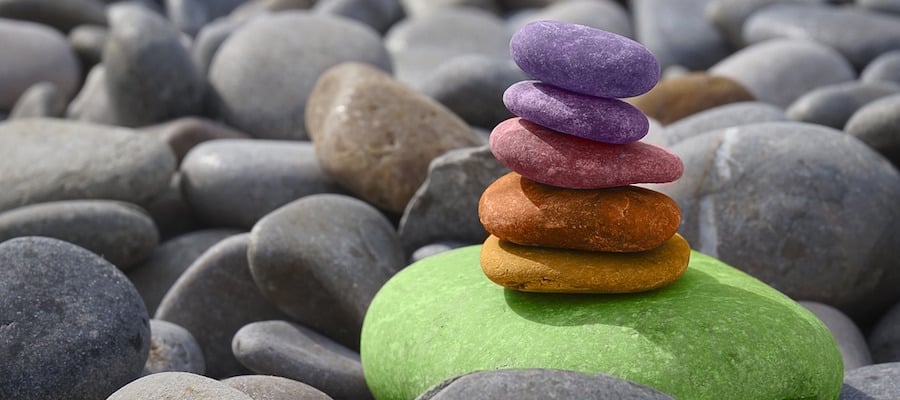
4. Do more yoga, or tai chi, or meditation, or …
Most of us need to tap into our creative powers at school or work. Yet, stress destroys creativity. It leads to physical problems like headaches, chronic inflammation, depression, and digestive disorders, making it more difficult to work, and it also reduces our mental ability to be creative.
When researchers looked at the relationship between stress and creativity in the 1990s, they found strong negative correlations between the two. The higher the stress level, the lower the creativity[8].
In a later study, they looked at more than 9,000 daily diary entries from employees working on projects that required high levels of creativity. Those employees who felt stressed out because of time pressures were less likely to think creatively[9].
To increase productivity, build in a daily stress-relieving activity such as yoga, tai chi, meditation, pet therapy, crafting, and/or time with friends. It’s best to pencil it in, or you may be likely to blow it off, which could be detrimental to your productivity the next day.
5. Focus On The Mind-Body Machine
It’s easy to get caught up in the thinking that our solutions to time management are “out there” in the world, when the truth is that they’re more often inside our own minds.
Step up your self-care and you’ll find yourself thinking less about how far behind you are and more about the amazing things you’re accomplishing.
Ready to take your holistic knowledge to the next level? Learn more about holistic health practitioner certifications at ACHS!
Read Colleen M. Story's full blogger bio here, or visit her website here.
References
- Alhola, P., & Polo-Kantola, P. (2007). Sleep deprivation: Impact on cognitive performance. Neuropsychiatr Dis Treat, 3(5), 553-567. Retrieved from https://www.ncbi.nlm.nih.gov/pmc/articles/PMC2656292/
- Amabile, T. M., Hadley, C. N., & Kramer, S. J. (2002). Creativity under the gun. Harvard Business Review, 80(8), 52-61. Retrieved from http://europepmc.org/abstract/MED/12195920/reload=0;jsessionid=fObN5ldi38y4x7wKcTqQ.18
- Chang, A., Aeschbach, D., Duffy, J. F., & Czeisler, C. A. (2014). Evening use of light-emitting eReaders negatively affects sleep, circadian timing, and next-morning alertness. Proceedings of the National Academy of Sciences, 112(4), 1232-1237. doi:10.1073/pnas.1418490112
- Hodan Farah Wells and Jean C. Buzby, “Dietary Assessment of Major Trends in U.S. Food Consumption, 1970-2005” USDA, Economic Information Bulletin No. (EIB-33) 27 pp, March 2008, http://www.ers.usda.gov/publications/eib-economic-information-bulletin/eib33.aspx.
- Magnusson, K., Hauck, L., Jeffrey, B., Elias, V., Humphrey, A., Nath, R., et al. (2015). Relationships between diet-related changes in the gut microbiome and cognitive flexibility. Neuroscience, 300, 128-140. doi:10.1016/j.neuroscience.2015.05.016
- Schmidt, E. (2012, May). This is your brain on sugar: UCLA study shows high-fructose diet sabotages learning, memory | UCLA. Retrieved January 26, 2017, from http://newsroom.ucla.edu/releases/this-is-your-brain-on-sugar-ucla-233992
- Turgiss, J., & Allen, S. (2014). Asleep on the job: The causes and consequences of employees' disrupted sleep and how employers can help. Retrieved from: http://connect.virginpulse.com/asleep-on-the-job-report-from-virgin-pulse.pdf
- Talbot, R., Cooper, C., & Barrow, S. (1992). Creativity and Stress. Creativity and Innovation Management, 1(4), 183-193. doi:10.1111/j.1467-8691.1992.tb00052.x
- Von Thiele Schwarz, U., & Hasson, H. (2011). Employee self-rated productivity and objective organizational production levels. Journal of Occupational and Environmental Medicine, 53(8), 838-844. doi:10.1097/jom.0b013e31822589c2
- Wells, H. F., & Buzby, J. C. (2008). Dietary assessment of major trends in U.S. food consumption, 1970-2005 (EIB-33). Retrieved from: https://www.ers.usda.gov/publications/pub-details/?pubid=44220
Disclosure of Material Connection: I am a guest blogger for American College of Healthcare Sciences, the Institution that publishes this blog. However, all opinions are my own. This blog may contain affiliate links. I am disclosing this in accordance with the Federal Trade Commission’s 16 CFR, Part 255: “Guides Concerning the Use of Endorsements and Testimonials in Advertising.”
This article is for informational purposes only. It is not intended to treat, diagnose, cure, or prevent disease. This article has not been reviewed by the FDA. Always consult with your primary care physician or naturopathic doctor before making any significant changes to your health and wellness routine.


